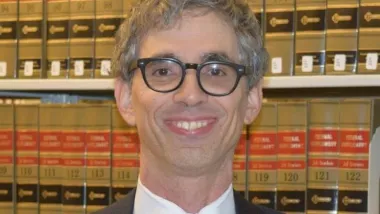Conservatives are becoming more visible within the smart growth movement; they differ in some ways both from liberal smart growth activists and from conventional conservatives.

There is finally a new blog, Smart Growth for Conservatives, focusing on issues of interest to those of us who generally support smart growth and new urbanism, and yet are less politically liberal than most people who do so.
How are conservative smart growthers (or CSGs) similar to their more liberal allies? Like environmentally minded critics of sprawl, CSGs oppose government subsidies for sprawl and sprawl-generating government regulations. In particular, quite a few of the new blog's posts focus on wasteful sprawl-generating road spending.
Having said that, CSGs do tend to differ from other smart growth supporters in a couple of ways. First, they tend to be fiscal conservatives, and thus skeptical of public amenities that are nice to have but perhaps not absolute necessities. As a result, they are less consistently supportive of public spending on public transit and pedestrian/bicycle facilities than liberals might be. Second, some issues that are generally part of today's liberal agenda are deemphasized by CSGs. In particular, CSGs are less likely to discuss climate change or social diversity than liberal new urbanists. I also suspect that CSGs are less likely to support smart growth regulations such as Oregon's growth boundaries; but since most Americans don't live in Oregon, CSGs aren't as obsessed with these regulations as are conventional pro-sprawl conservatives.
Of course, CSGs differ among themselves. Some CSGs are (as Mitt Romney might say) "severe" fiscal conservatives, and thus tend to be skeptical of all large-scale government expenditures. Personally, I am more of a Nixon Republican - which is to say, although I am less pro-regulation and egalitarian than many liberals, I am willing to support government spending not just as an "investment" (whatever that means) but as a public amenity akin to parks and schools.

Planetizen Federal Action Tracker
A weekly monitor of how Trump’s orders and actions are impacting planners and planning in America.

Chicago’s Ghost Rails
Just beneath the surface of the modern city lie the remnants of its expansive early 20th-century streetcar system.

Amtrak Cutting Jobs, Funding to High-Speed Rail
The agency plans to cut 10 percent of its workforce and has confirmed it will not fund new high-speed rail projects.

Ohio Forces Data Centers to Prepay for Power
Utilities are calling on states to hold data center operators responsible for new energy demands to prevent leaving consumers on the hook for their bills.

MARTA CEO Steps Down Amid Citizenship Concerns
MARTA’s board announced Thursday that its chief, who is from Canada, is resigning due to questions about his immigration status.

Silicon Valley ‘Bike Superhighway’ Awarded $14M State Grant
A Caltrans grant brings the 10-mile Central Bikeway project connecting Santa Clara and East San Jose closer to fruition.
Urban Design for Planners 1: Software Tools
This six-course series explores essential urban design concepts using open source software and equips planners with the tools they need to participate fully in the urban design process.
Planning for Universal Design
Learn the tools for implementing Universal Design in planning regulations.
Caltrans
City of Fort Worth
Mpact (founded as Rail~Volution)
City of Camden Redevelopment Agency
City of Astoria
City of Portland
City of Laramie




























